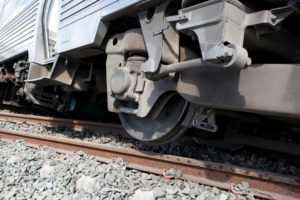On Monday, August 19, 2013, Judge Rosemary Barkett announced her departure from the 11th Circuit bench to fill an international claims tribunal in The Hague, Netherlands. Judge Barkett is Mexican-born and a former nun who has been a judge for over three decades, notably serving as the first female Chief Justice of the Florida Supreme Court before moving to the 11th Circuit bench.
The day after her announcement last week, I appeared before an Eleventh Circuit panel lead by Chief Judge Ed Carnes as he conducted his first docket of oral arguments as the Chief Judge. He is the newest Chief Judge of the Eleventh Circuit Court of Appeals, which handles appeals from Alabama, Florida and Georgia, rising to that seat upon the retirement of Judge Joel Dubina. Judge Dubina’s move to senior status on August 1, 2013, left a vacancy on the court that remains to be filled by presidential appointment. According to another 11th Circuit judge with senior status who entertained my questions on the subject, senior status is akin to semi-retirement for Circuit Court Judges who want to stay active on the court without having a full caseload. His senior status will allow Judge Dubina to contribute to the resolution of cases, but he will not be considered one of the 12 judges that make up the formal Court.
An earlier vacancy occurred on August 29, 2010, upon the retirement of Judge Stanley Birch, which has not been filled because the president’s nomination of Jill Pryor was blocked by her two Georgia senators. Another vacancy on the 11th Circuit was created by the retirement of Judge J.L. Edmondson last year. Along with the Birch, Dubina and Edmondson vacancies, Judge Barkett’s decision will create four vacancies on the bench when she ends her tenure on September 30, 2013.
Dubina’s decision is not final, however. Wary of leaving his colleagues “in the lurch,” Judge Dubina did announce a re-examination of his plans shortly after he notified United States Supreme Court Chief Justice John Roberts earlier this year of his intent to retire. With four vacancies, an eight-member court would have the caseload a 12-member court would ordinarily manage. The 11th Circuit’s caseload is considered the largest in the nation. Judge Dubina’s concern stems from having seen the effect of vacancies on the court several times since his appointment to the 11th Circuit in 1990. Atlanta news outlets reported that Judge Dubina’s hesitation is due to having seen the consistency of the court’s precedential opinions negatively affected by the replacement on oral argument panels of visiting non-Eleventh Circuit judges.
I share Judge Dubina’s opinion that the court’s precedent would be affected. Though Chief Judge Carnes’ ascension to the highest level of authority on the 11th Circuit may not trigger a shift in the policy or politics of the court, the appointment of four new judges by a Democratic president undoubtedly would. It’s unfortunate, therefore, that the possibility of this happening is remote.
The 11th Circuit Court of Appeals is one of the most conservative in the nation. The current judges’ appointments date as far back as the 1975 appointment of the (now 83 year-old) Judge Gerald Tjoflat to the (then 5th) Circuit Court by Republican President Gerald Ford. If four of President Obama’s nominations were confirmed and appointed, the court would have 8 democratic appointees within its ranks.
The opportunity to nominate some new, young, fresh-faced, and open-minded appointees to the 11th Circuit is not one the executive branch is apt to squander, but their efforts will be in vain. Georgia senators stymied Atlanta attorney Jill Pryor’s nomination, much like the equally conservative-minded Senators Sessions and Shelby will block the nominations of any Alabama lawyers or judges President Obama taps to fill the remaining empty posts. The impact on jurisprudence in the 11th Circuit will be no less than two-fold: dockets will back up as the court staff struggles under the weight of delays due to the diminished judges on the bench, and the staunch conservativism of the court’s opinions will continue to grow, unchecked. The solution, therefore, will have to come with the inauguration of the next administration.










Comments for this article are closed.